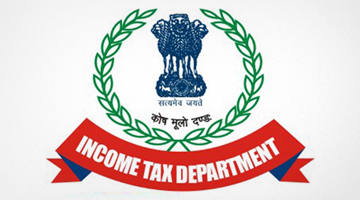AUGUST 13, 2016
By TIOL Edit Team
THE Finance Ministry's advice to all ministries to create a new procedural framework for prompt settlement of preliminary audit objections is too small and too soft.
The advisory would not shake the governance system that leaks thousands of crore of public money every year with hardly any penalties on culprits. The rationale for this negativism is rooted in the failure of previous advisories with first having been issued about 50 years back!
Now that latest carrot in the form of hefty pay hikes has been given under 7th Pay Commission award, it time for the Government wield the stick. The Ministry thus must specify graded penalties for officials proportionate to the slippages in filing replies.
The Ministry should consider launching yearly State of Governance report by compiling all cases of failure to furnish replies within timelines and extended deadlines. The proposed report should also mention all specific failure of various departments and their appendages to comply with laws, rules and norms.
Let this be one of the top agenda of Transforming India mission. The urgency for this name-and-shame strategy for indifferent bureaucrats can be appreciated by looking at latest CAG's compliance audit reports.
Before citing a few findings of these reports, we should explain one-page Office memorandum (OM) dated 10th August 2016 circulated by the Finance Ministry. It has drawn other ministries' attention to the large number of pending inspection reports (IRs)/audit paras where even the first reply has not been furnished to Comptroller and Auditor General (CAG).
Under the CAG regulations, the replies to IRs are to be furnished within four weeks of receipt. Where it is not feasible to furnish the final replies to some of the observations within the timeline, interim reply may be given indicating likely date of final reply.
Keeping this in view, the Government has decided that every ministry will set up a committee under the chairmanship of a Joint Secretary to settle outstanding IRs. The Finance Ministry has requested all ministries to facilitate prompt settlement of IRs to avoid their conversion into full-fledged audit paras.
The OM has been issued in supersession of its earlier one dated 1st January 1985 which reminded the recalcitrant ministries to set up ad hoc committees (AHCs) to clear pending audit paras.
The 1985 OM drew ministries' attention to OM dated 27th February 1967 which advised them to set up AHCs to clear "chronic objections which had somehow defined attempts at settlement." The Finance Ministry advised the ministries to set up AHCs in case they had not yet constituted such panels.
The Finance Ministry ought to explain how substitution of one committee (regular AHCs since 1967) with new one would reduce, if not wipe out, backlog of preliminary audit objections.
AHCs were supervised by Standing Audit Committees (SAC) that prepare action taken notes on the findings mentioned in CAG reports placed in Parliament. SACs are chaired by Secretary of the concerned Ministry or the Department as the case may be. The latest OM makes no mention of such oversight arrangement.
What is more disappointing is the Government's failure to specify a mechanism to fix responsibility and penalties for delay in settling preliminary audit observations.
Apart from specifying penalties for delays, the Government should specify norms for automatic reference of slippages in filing replies to Central Vigilance Commission (CVC), Central Bureau of Investigation (CBI) and other enforcement agencies. The Government ought to send a clear signal to all officials that CAG-discovered violations of statute & government directives and their cover-up can't be taken in casual manner.
Consider now CAG report numbered 15 of 2016 relating Compliance Audit Observations released on 8th August 2016.
The Volume I of the report shows that CAG did not receive replies to 22 out of 32 specific observations relating to 20 PSUs of 11 ministries within requisite six weeks. CAG says: "Replies (of ministries) to 22 observations were not received even as this Report was being finalised. Earlier, the draft observations were sent to the Managements of the PSUs concerned, whose replies have been suitable incorporated in the report."
The 32 observations have financial implication aggregating to Rs 5,936.76 crore. Of this, Rs 49.19 crore has been recovered by five PSUs following audit observations. This implies that the lion's share of potential recovery is at risk, which multiplies with the passage of time as the experience shows.
The 32 observations deal with non-compliance by PSUs with rules, directives, procedure, terms and conditions of the contract, PSUs' failure to safeguard their financial interests, defective planning and inadequate monitoring of works.
The Report's volume II CAG did not receive replies to 16 out of 21 observations relating to 11 PSUs under five Ministries even at the time of printing of the document. Total financial implications of 21 observations Total financial implication of audit observations is Rs 9,736.69 crore.
Study of each specific observation can depress anyone with an iota of concern for fiscal discipline and national development.
We don't want to drive home further our concern for public money by citing other compliance audit reports on railways, telecom, etc. presented during 2016.
CAG's Regulations on Audit and Accounts define compliance audit as "an assessment as to whether the provisions of the Constitution of India, applicable laws, rules and regulations made there under and various orders and instructions issued by the competent authority are being complied with".
CAG believes such "audit by its very nature promotes accountability, good governance and transparency as it is concerned with reporting deviations, identifying weaknesses and assessing propriety".
It remains to seen whether Finance Ministry would transform compliance audit into an admired and respected means to achieving good governance. |









 Download PDF
Download PDF



